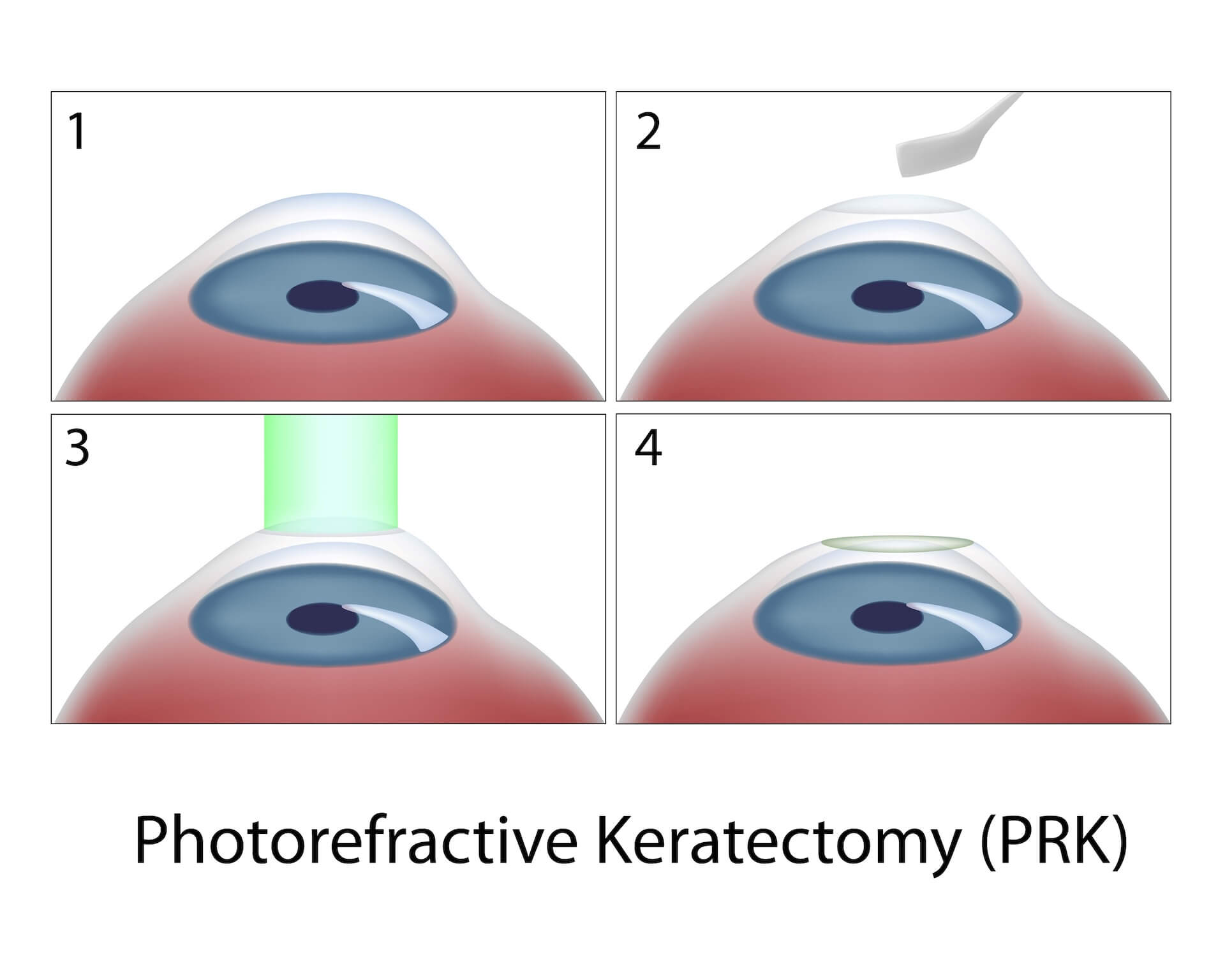Photorefractive Keratectomy (PRK)
Delta Eye Medical Group’s Laser Vision Correction Center provides PRK as a LASIK alternative at all of our locations (Stockton, Tracy & Lodi)!
Photorefractive keratectomy (PRK) is an ophthalmologic procedure that reshapes the corneal curvature with an excimer laser to optimize the refractive ability of the patient’s eye. PRK permanently changes the shape of the cornea. The surgery is performed using topical anesthetics (eyedrops). The ultraviolet light beam of the excimer laser is used to vaporize tiny amounts of tissue, one microscopic layer at a time, much like removing a few pages of a book. This process is computer controlled, and software-driven. The result is a change in the corneal curvature (shape), thereby reducing or correcting your nearsightedness and/or astigmatism. PRK was approved by the United States Food and Drug Administration (FDA) in 1995, becoming the first FDA-approved corneal refractive surgery. Shortly after, the FDA approved laser-assisted in situ keratomileusis (LASIK), a similar refractive surgery requiring a flap of corneal tissue to be made prior to laser correction rather than a removal of corneal tissue as in PRK. Although LASIK has a faster recovery period many patients still undergo PRK due to its ability to correct the surface of the cornea without requiring a flap of tissue to be made. As opposed to LASIK, PRK allows for a broader scope of patients with thinner corneas to be eligible for surgery and decreases the possibility of flap complications. Both methods have comparable long-term results and some studies have even shown them to be equivalent at 1-6 months.



